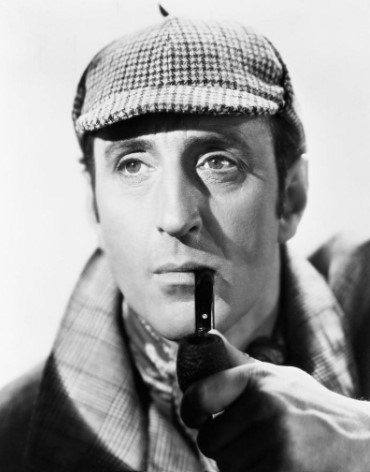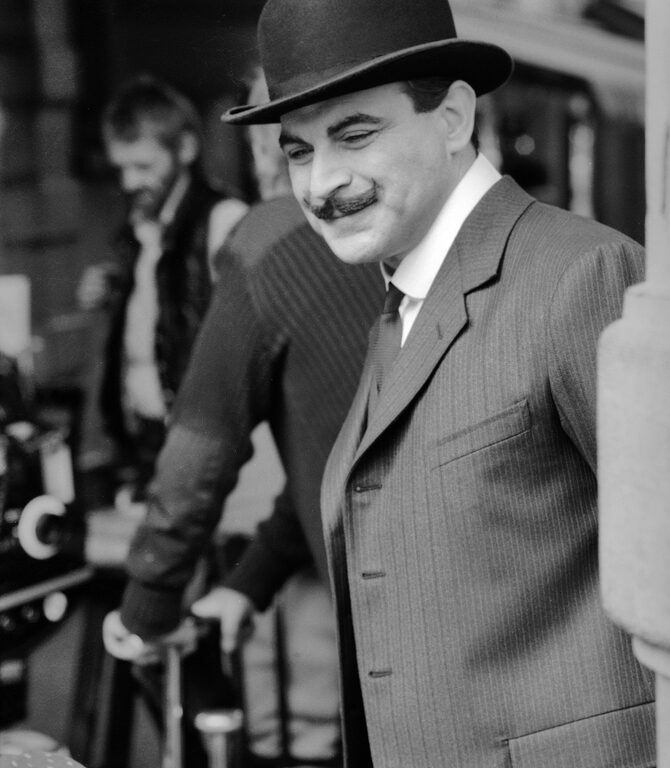Sherlock Holmes and Hercule Poirot: The Icons of Classic Whodunnit Mysteries
Whodunnit novels have been a beloved genre for over a century, captivating readers with their intricate plots, puzzling clues, and—most importantly—the brilliant detectives who solve them. From the Victorian streets of London to the sun-drenched villages of the English countryside, the detectives at the heart of these stories are the ones who bring the thrill to life. Let’s take a closer look at two of the most iconic detectives who have shaped the world of whodunnit novels: Sherlock Holmes and Hercule Poirot.
Sherlock Holmes: The Archetype of the Brilliant Detective
Created by Sir Arthur Conan Doyle, Sherlock Holmes is arguably the most famous detective in literary history. First introduced in A Study in Scarlet (1887), Holmes is the embodiment of rational thinking, deduction, and observation. With his trusty sidekick, Dr. John Watson, by his side, Holmes solves seemingly unsolvable mysteries with a combination of sharp intellect and methodical investigation.
What makes Sherlock Holmes stand out in the realm of whodunnits is his keen eye for detail and his ability to make connections that others overlook. Doyle’s stories often feature vivid descriptions of Holmes analyzing the tiniest clues—like a piece of ash or a footprint—unraveling the mystery with precision. His detached, almost aloof personality only adds to his mystique, as readers watch him tackle case after case with unshakable confidence.
Some of Sherlock Holmes’ most memorable cases, like The Hound of the Baskervilles and The Adventure of the Speckled Band, have set the standard for how detective stories are written. These tales challenge readers to follow along with Holmes’ process, often leaving them as impressed by his conclusions as Watson himself.

Hercule Poirot: The Master of Order and Logic
If Sherlock Holmes represents the height of British rationalism, then Agatha Christie’s Hercule Poirot is the quintessential figure of meticulous, Belgian brilliance. Introduced in The Mysterious Affair at Styles (1920), Poirot quickly became a favorite of mystery lovers, thanks to his impeccable sense of order, logic, and attention to human psychology.
Unlike Holmes, who often relies on physical clues, Poirot focuses on “the psychology of the crime.” He believes that by understanding the motives and behaviors of people, he can unlock the truth. His famous “little grey cells” are his greatest asset, allowing him to untangle the most baffling mysteries by piecing together seemingly unrelated details.
Poirot’s cases, like Murder on the Orient Express, The Murder of Roger Ackroyd, and Death on the Nile, are not just classic whodunnits—they’re masterclasses in misdirection. Christie often lures readers into making assumptions, only for Poirot to reveal a completely unexpected solution. Poirot’s distinctive personality, with his impeccable grooming and penchant for order, makes him a character that is both eccentric and deeply endearing to readers.

The Legacy of Holmes and Poirot
Both Holmes and Poirot have left indelible marks on the world of detective fiction. They represent different sides of the detective archetype: Holmes, the cold, calculating genius, and Poirot, the observant, detail-oriented master of human behavior. Yet, both detectives share an unrelenting commitment to justice and the pursuit of truth, no matter how convoluted the path may be.
Their influence can be seen in countless modern-day detectives, from the brooding noir detectives of Raymond Chandler’s novels to the quirky sleuths in today’s crime dramas. The formula of the brilliant detective, paired with a complex mystery and a surprising reveal, continues to captivate readers and audiences alike.
Why We Love a Good Detective
At the heart of every great whodunnit is the detective, the figure who serves as our guide through the murky waters of crime and deception. Whether it’s Holmes with his magnifying glass or Poirot with his delicate mustache, these characters offer us more than just solutions to mysteries—they provide reassurance that, no matter how tangled or confusing life becomes, there is always a mind capable of bringing order to chaos.
In a world filled with uncertainty, the detective offers a promise: that the truth can always be found, if only we look hard enough. And perhaps that’s why, after all these years, we continue to return to the stories of Sherlock Holmes and Hercule Poirot, eager to solve the next great mystery alongside them.
So the next time you pick up a classic whodunnit, take a moment to appreciate the detective at its heart—the character who makes every twist, clue, and reveal an unforgettable journey.
Whether you’re a fan of Sherlock Holmes’ cold logic or Poirot’s keen insight into human nature, one thing is certain: the greatest whodunnit novels owe much of their brilliance to the unforgettable detectives who solve the mysteries.








